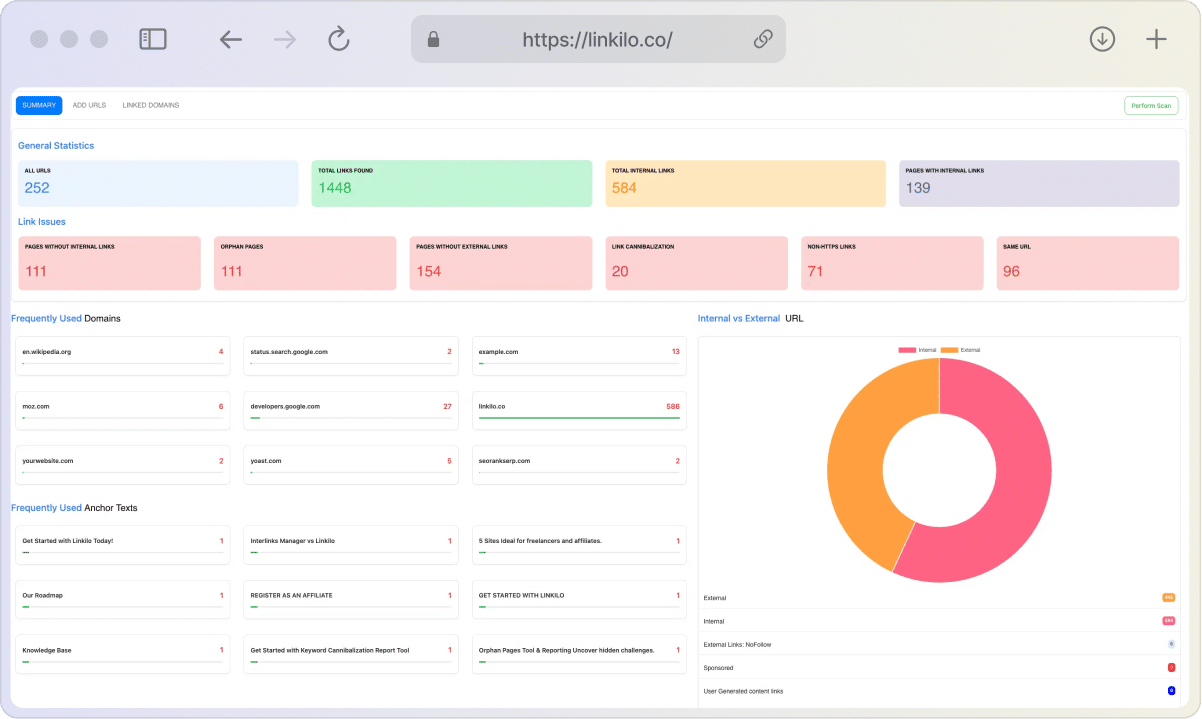Blogging stands as a cornerstone of any effective SEO strategy. With the ever-evolving algorithms of search engines, it’s essential to regularly create content that resonates with your audience. By consistently publishing optimized blog posts, you’re not only enhancing your website’s keyword prominence but also bolstering its position in search results.
When your blog content is enriched with relevant keywords and updated frequently, it sends positive signals to search engines. This proactive approach to content marketing inevitably improves your website’s organic search performance. As a result, the more you invest in crafting and optimizing your blog content, the higher your site climbs in search engine rankings, driving increased organic traffic.
Furthermore, blogs serve as a pivotal platform for link building, enhancing your site’s authority and credibility. When customers can easily find your company through organic search results, it underscores the undeniable importance of incorporating blogs into your SEO strategy.
In the subsequent sections, we’ll explore the myriad advantages of intertwining SEO with your blogging efforts.
1. Blogs increase organic SEO volume

Understanding the impact of blogging on SEO starts with recognizing the power of organic search AND organic traffic. Whenever someone types a query into a search engine, a list of websites appears. Every new blog post you publish creates an additional opportunity for search engines to rank your site, thereby increasing the chance your website will appear in these results.
2. Rich Snippet Opportunities
Well-structured blog articles can provide opportunities for your website to earn “rich snippets” or “featured snippets” in Google search results. These are the boxes you sometimes see at the top of search results that provide direct answers to search queries.
3. Blogs are important for internal SEO linking
Internal links are the bridges connecting different content pieces on your website. They help establish content hierarchy and distribute page authority throughout your site. When you incorporate a strategic internal linking approach, it can elevate the rankings for your chosen keywords—a fact well-acknowledged in SEO circles.
4. Blogs offer unlimited SEO keyword opportunities
Blogging provides an ongoing opportunity to target a plethora of SEO-friendly keywords. Each blog post can target a fresh set of high-value keywords, enhancing traffic to your site.
For even more impact, focus on long-tail keywords with four or more words. They can be key to driving organic traffic. Proper keyword research, coupled with incorporating those keywords naturally into your blog, enhances the SEO potential of each post.
5. Blogs gain more traffic with SEO images
Many underestimate the SEO potential of images. But considering that 22.6% of all searches on the internet are for images, according to Jumpshot, there’s immense potential here.
Furthermore, 63% of users who click on an image during their search end up visiting the website hosting that image. Incorporating and optimizing images within your blog posts can significantly improve your site’s visibility.
6. Blogs increase site authority with backlinks

The value of high-quality backlinks can’t be overstated. Many SEO professionals agree that backlinks are among the top factors in Google’s ranking algorithm. A site’s quality is often judged by the number and quality of links pointing to it—a fact cemented by Google’s PageRank algorithm.
While you can engage in outreach for backlinks to your homepage, having a repertoire of quality blog posts increases the chances of other sites linking back to your content.
7. Blogging keeps your website fresh and current
An outdated website can raise eyebrows. Users might question its relevance or even wonder if the associated business is still operational. Regular blogging ensures your website stays updated, giving users confidence in the content they’re consuming.
8. Improved User Engagement
Blogs provide valuable, informative content that can keep visitors on your website for longer. Search engines use dwell time (the time a visitor spends on your site after clicking on your listing) as an indicator of your site’s value. The longer users stay, the better your site is perceived.
9. Blogging highlights your brand identity
Your blog is an amplifier for your brand’s voice. Whether you aim for your brand to be perceived as professional, fun, or anywhere in between, blogging showcases these characteristics.
Detailed posts can articulate the benefits of your services or products, allowing visitors to grasp the quality, attention to detail, and unique selling propositions of what you offer.
Furthermore, if your company holds specific values—like a commitment to sustainability—your blog is the platform to champion that.
10. Establishing Thought Leadership
By consistently producing authoritative content in your niche, your website can become a recognized thought leader. This not only boosts direct traffic but also increases the likelihood of other authoritative sites linking back to you, further boosting your SEO.
11. Blogging increases lead generation
Generating leads is a pivotal aim of any marketing effort. For businesses spanning various sectors—from manufacturers to retailers—online leads are invaluable. Here’s how blogging plays a role:
- Potential customers search for topics online.
- They focus on relevant snippets in search results.
- They visit your site to read the complete blog post.
- Intrigued readers might click on calls to action.
- These CTAs lead readers to specific landing pages.
- Here, customers might opt for a guide or service, providing you with a lead.
With blogging, you’re not just answering user queries; you’re positioning your content to appear in search results. This strategy increases the chances of gaining a new customer, especially since your blog content is tailored to your target audience.
12. Consistent blogging increases traffic

Drawing traffic to your site requires a harmonious blend of art and science. Search engines prioritize active websites. Your content should be keyword-rich to rank high in pertinent searches. And the content must engage users enough for them to click through.
With numerous indexed pages, you have more shots at gaining clicks. Consistent blogging meets all these criteria, serving content that resonates with your target audience and increasing the website’s overall keyword density.
13. Feedback and Insights
Comments on your blogs can provide insights into what your audience values and what they’re curious about. This feedback can guide your content strategy, ensuring you’re meeting the needs and interests of your readers.
Conclusion
Blogs play an instrumental role in SEO. While the most immediate benefit might be an uptick in visitors, blogs also significantly aid your broader SEO endeavors. For a website looking to establish a robust presence on search engines like Google, Bing, and Yahoo, consistently churning out blog posts is one of the most effective strategies to achieve this.





